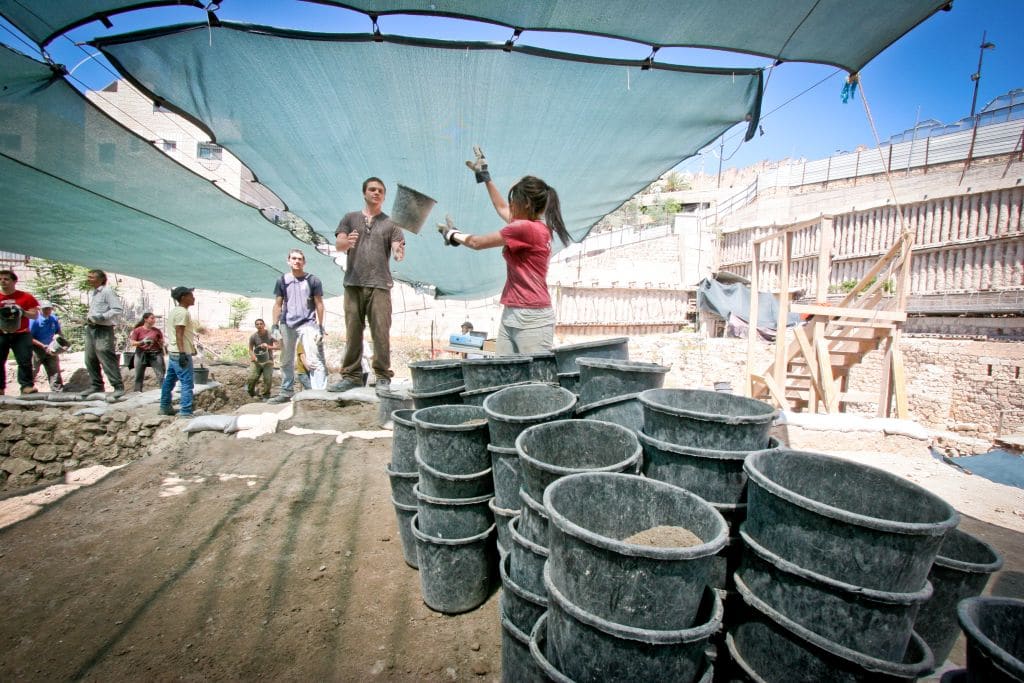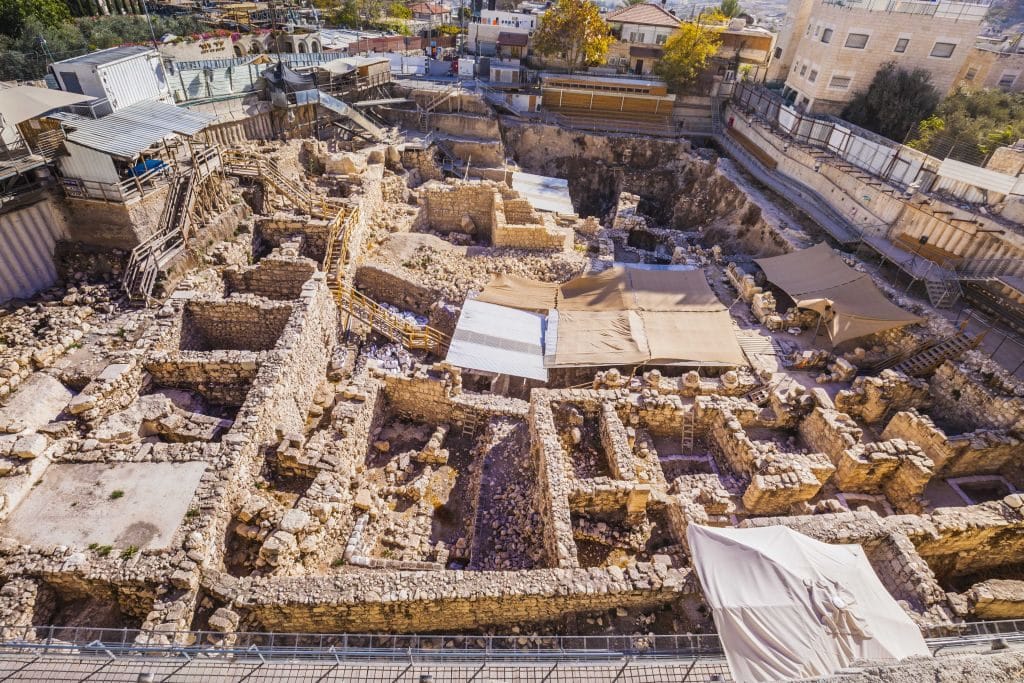
A stone seal and the clay bulla, or impression, of another, both dating from the end of the Kingdom of Judah some 2,500 years ago, came to light recently in the City of David excavations in the Givati parking lot by the Old City of Jerusalem.
Both were found within the remains of a sixth-century BCE public building which was apparently destroyed in the Babylonian conquest of 586 or 587 BCE. Evidence of the destruction included heaps of fallen stones, burnt wooden beams and ceramic vessels.
Dr. Anat Mendel-Geberovich of Hebrew University analyzed the writing on the two artifacts, each just a centimeter large. The bulla is impressed “[belonging] to Netan-melekh, servant of the king.” The name Netan-melekh appears just once in the Bible, in Kings II (23:11), as the name of a eunuch in the court of King Josiah: “Then he removed the horses that the kings of Judah had dedicated to the sun, at the entrance to the house of the Lord, by the chamber of Nethan-Melekh, the officer who was in the court; and he burned the chariots of the sun with fire.”
The term “servant of the king” is well known from the bible, and denotes a high-ranking official of the king’s retinue. Other bullas marked with the title have come to light in the past.
According to Dr. Anat Mendel-Geberovich, “though it cannot be proven that the biblical Netan-melekh was indeed the owner of this seal, the details connecting them can’t be ignored. The name Netan-melekh occurs rarely both in the bible and in archeology; both are described in terms (eunuch and servant) reserved for the king’s most intimate servants, and both date from the period of King Josiah, the seventh century BCE.
Bullas are small pieces of clay used in ancient times to keep letters tamper-proof. As opposed to the leather or papyrus scrolls they sealed, which were doomed by the conflagration that consumed Jerusalem, these tiny incidental details were only hardened by the flames, like fired ceramics. They were thus preserved for posterity along with the identity of their owners.
The stone seal was made of blue agate and inscribed “[belonging] to Ikar son of Matanyahu.” While Matanyahu is a biblical name, occurring on other seals and bullas, this is the first known occurrence of the word Ikar. Though the same letters in modern Hebrew denote a farmer, Mendel-Geberovich discounts the possibility that the word denotes an occupation rather than a name.

![[belonging] to Netan-melech the king's servant](https://segulamag.com/wp-content/uploads/2019/04/בולה-לנתנמלך-עבד-המלך2_צילום-אליהו-ינאי-עיר-דוד-300x232.jpg)
